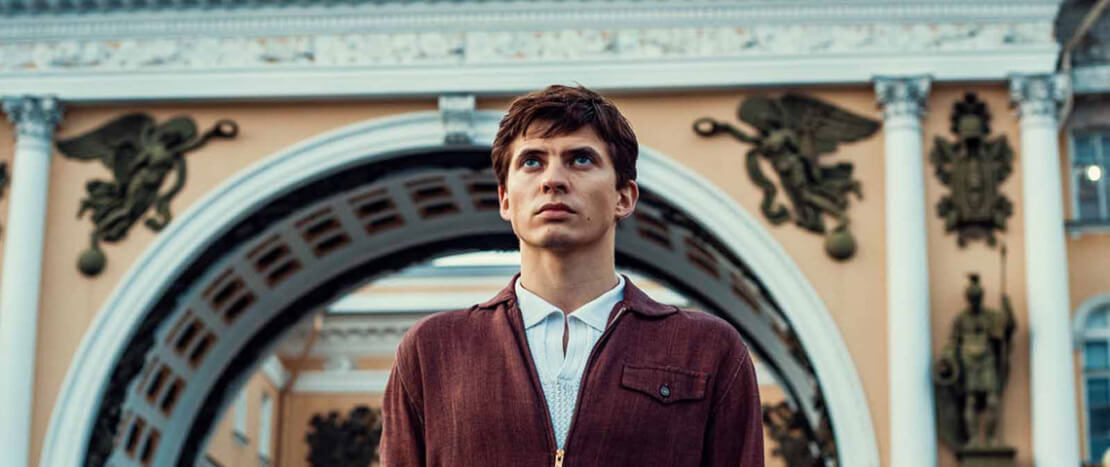The White Crow
Always on the outside of every situation, fate marked out dancer Rudolph Nureyevas a ‘white crow’ early on in his life. Seemingly forever stood on the periphery of his moment, it would be ballet that would allow him inside and yet would also set him at odds with the Russian establishment.
… plays much like an inverse reflection of what made the dancer so revered.
Never the most technically perfect but able to mesmerically transmit emotion, Ralph Fiennes’s adaptation of Rudolph Nureyev’s life plays much like an inverse reflection of what made the dancer so great. Painted in a sterile palette, ‘The White Crow’ successfully suffocates the joy that Nureyev and fellow dancers were asked to bring forth. In a story where veiled whispers and conversations in corridors can either seal ascension or risk damnation, David Hare’s script is part biography, part a dissection on ideological suppression.
Challenged by the Bolshoi’s exacting attitude to excellence, Oleg Ivenko’s Nureyev is both a lyrical and petulant annoyance. Impossible to ignore and yet fed from within by a fierce desire to succeed, Ivenko channels Nureyev’s arrogance perfectly as a comforting cloak and a rapier-like protest.
Eventually befriended by dance instructor Alexander Pushkin (Ralph Fiennes)’s Nureyev ultimately discovers that everything in 1980’s Russia has a price, even that to which natural talent can offer no defense.
“Unless you have a story, you no reason to dance” lashes out Nureyev. It is a soundbite that also sadly chomps down hard on the film’s own ability to arrest you with its narrative. This is because when the pivotal moment arrives, it does so without any escalation or teasing. Left without any tenuous sympathies to draw you in, ‘The White Crow’ sadly falls to earth with an uneven thud.
Whereas the real-life Nureyev was a peasant from the sticks who became a prince in the theatre, Ralph Fiennes’s ‘White Crow’ is a film that also succumbs to the ‘Red Sparrow’s’ overtly constrictive plumage. Caught up in the confining atmospheres of its period detail, both films sadly twist in the wind where they should have been successful flights.
It would seem that even in unfavourable histories, the Russia House always wins.









